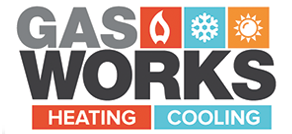
- Drink plenty of water – avoid caffeine and alcohol
- spend time in cool places
- keep out of the sun. If you have to go outside, go in the early morning or late evening and stay in the shade
- wear light coloured, loose clothing and take a hat to wear outside
- always use plenty of sunscreen
- don’t do a lot of exercise outside when it is very hot
- to help you sleep use a water spray mister on your face and body
- try to stay inside with a fan or air conditioner on
Babies and young children
- Babies and young children need watching carefully when it is hot as they can get sick very quickly
- cars can get dangerously hot – never leave babies, young children or pets alone in a car even if the air conditioning is on
- if you are pregnant or breastfeeding, you should drink more water than usual
- always wear shoes outside on hot days – the ground can easily burn the feet of babies or young children
Older people
- Check on older people at least twice every day especially if they live alone
- make sure older people are using their air conditioning when it is hot – always check the setting is on ‘cool’
People with physical or mental health conditions
- Keep taking any prescribed medicine every day at the same time as you normally do, even if you feel unwell because of the heat
Your home
- Keep your home cool by closing curtains, blinds and windows during the day
- if it is safe, open windows at night to let cool air in
- wear as little clothing as possible when in your own home to keep cool
- bacteria can grow very quickly on food in hot weather and make you ill – keep all fresh food in the fridge
- animals can suffer and even die on very hot days so keep them in the house or make sure they have shade in the garden and always leave them plenty of water
Help is available
If you think you are ill:
- speak to your local chemist/pharmacist or call your GP
- older people can register with the Red Cross and a volunteer will call 3 times a day to check if they are ok. Register by calling 1800 188 071
- if you are very sick, go to your nearest hospital or call 000 for an ambulance
For other practical ideas, visit the SA Health website for more information or contact the Emergency Management Unit.

